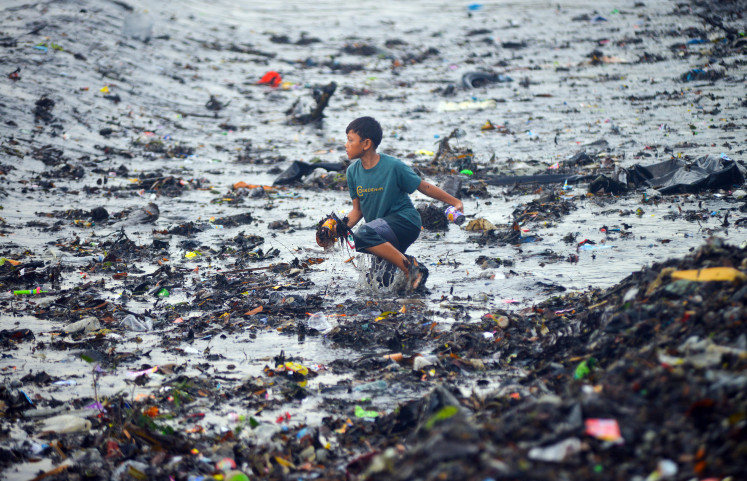Popular Reads
Top Results
Can't find what you're looking for?
View all search resultsPopular Reads
Top Results
Can't find what you're looking for?
View all search resultsLet’s protect children’s right to oral health
Here are a few tips for parents on how to teach their children to take care of their teeth as we look to marking National Dental Health Day, which falls on Sunday this year.
Change text size
Gift Premium Articles
to Anyone
D
o you know that baby teeth are as important as permanent teeth? Or do you still think baby teeth are unimportant because one day they will be replaced with permanent teeth?
Here is a fact: In my daily practice as a pediatric dentist, a family will typically step into my dental office, the child with a lot of tooth decay and the parents regretting their ignorance in the past.
“I thought it was fine if a child didn’t want to brush their teeth regularly,” or “My relatives said we don’t have to fix decay in baby teeth because the teeth will shed someday and soon, permanent teeth will erupt,” they would say.
According to the 2018 Basic Health Research (Riskesdas 2018), 93 percent of Indonesian children aged 5-6 years have tooth decay. If you have ever experienced the pain of toothache, imagine a child of 3 or 4 years experiencing that pain, remembering that they cannot explain the pain yet. When a cavity is hidden in an invisible spot, their parents are confused by why the child has suddenly lost their appetite or is crying all the time and is not sleeping well.
A mild cavity is usually invisible to both the parents and the child. The child still does not feel anything, either. A moderate cavity is sometimes only felt when there is a trigger, like hot or cold food and drink.
When someone has severe tooth decay, they can develop a painful toothache, swelling gums that turn into a swelling cheek or lips, as well as fever. The pain usually makes them unable to eat, speak or sleep well, keeping in mind that optimal calorie intake, physical activity and good sleeping habits play a big role in a child’s growth and development.
Tooth decay affects the child’s quality of life and vice versa. Parents who bring their child suffering from a toothache to my office have puffy eyes because of a lack of sleep. They have been busy taking care of their child.
Parents rush home from their office to pick up their child to take them to the dentist. At the dentist’s, they feel guilty because they have neglected their child’s oral health.
I always tell parents they can save their time and energy just by following a few steps that can prevent dental caries.
First, teach the child to brush their teeth, but parents need to brush the child’s teeth again until they are 7 or 8 years old, because toothbrushing requires fine motor skills. Parents can set aside time for a family toothbrushing session every night or maybe only on weekends, whichever works for the family. Parents and children brush their own teeth together in front of a mirror, then brush each other’s teeth to make it more fun.
Second, provide children with books or watch a video together about how to maintain good oral health. Role-play a visit to a dental office or be the dentist for a teddy bear. Be creative and fun, so the child will develop good dental habits.
Third, parents should adopt firm family rules like, “No more food or drink except water after brushing your teeth at night,” or “Candies and chocolate only on the weekend.”
It is true that baby teeth will shed and new teeth will appear, but if you treat baby teeth as a probationary phase, children will not learn to take care of their teeth. In the future, when their permanent teeth erupt and they remain unable to practice good oral habits, they stand a big chance of having toothaches.
If parents leave their children’s dental cavity untreated, they are also depriving their children of their right to a healthy life. If you think that baby teeth don’t require much attention, you are teaching your child that taking care of their body is not important.
As we observe National Dental Health Day on Sunday, let’s start paying more attention to our children’s oral health. More importantly, parents should be role models for their children. Take care of your teeth first, and your children will imitate your behavior.
As the old saying goes, prevention is always better than cure.
***
The writer is a pediatric dentist and founder of the Kejora Indonesia Foundation, which focuses on child health education.










